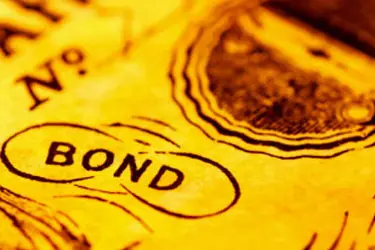PHOTO
By Bernardo Vizcaino
June 14 (Reuters) - A decision by Abu Dhabi-listed Dana Gas to declare $700 million of its sukuk invalid has sent shivers through the Islamic finance industry, raising concern about the safety of sharia-compliant debt instruments in general.
Dana said on Tuesday it had received legal advice that its sukuk, or Islamic bonds, which mature in October, were not compliant with the Islamic sharia code and had become "unlawful" in the United Arab Emirates.
The firm said it would halt payments and proposed that creditors exchange the sukuk for new Islamic instruments offering profit distributions less than half those of the existing sukuk.
Worryingly for the Islamic finance industry, Dana said its sukuk were unlawful "due to the evolution and continual development of Islamic financial instruments and their interpretation".
This has raised the prospect that other firms with Islamic debt could justify not honouring obligations by claiming sharia-based financial standards had changed since the debt was issued.
It risks hurting a growing market. Issuance of longer-dated sukuk across core markets reached $40 billion in 2016, up from about $32 billion in 2015, Standard & Poor's said.
In a conventional bond, the issuer pays bondholders interest and principal. Since interest is banned as "usury" in Islamic finance, sukuk holders are usually paid with returns from assets linked to the sukuk - in this case, Dana's gas assets.
Dana has struggled to obtain payments from its production assets in Egypt and Iraq's Kurdistan. With a cash balance of just $298 million in March, it had been expected to have difficulty redeeming its sukuk in October.
Nick Firoozye, a managing director at Nomura International in London, said Dana's case appeared to be the first time that a company under financial pressure had used uncertainty over sharia compliance in this way.
"The possibility that companies could by whim choose to restructure un-compliant sukuk whenever there is some credit deterioration, based on their own newly strict interpretations, sets a terrible precedent," he said.
Mohammed Khnifer, a senior associate at Jeddah-based Islamic Development Bank, said: "This specific sharia compliance risk is unprecedented. This incident has startled our Islamic finance industry."
Some holders of the Dana sukuk contacted by Reuters said they hoped a committee of creditors would resist Dana's action, on the grounds that the sukuk were declared valid when issued four years ago.
One person with knowledge of the case said the mudaraba structure which Dana used for its sukuk, while once common, had been superseded in the industry by other structures such as ijara, an Islamic form of leasing. Mudaraba is a type of investment management partnership.
"Dana is keen to engage constructively with sukuk holders to reach a consensual agreement," the person said.
SHIFTING INTERPRETATIONS
One characteristic of Islamic finance is that there is a wide range of opinions about what is sharia-compliant among the scholars who design instruments and advise investors what is permissible to buy.
For example, an instrument commonly accepted in Malaysia might be viewed with suspicion by Gulf Arab issuers and investors. And views can change over time: a common practice called commodity murabaha has been increasingly criticised by scholars in the last few years.
Prices of other corporate sukuk in the Gulf did not appear to react to Dana's announcement. But Firoozye, a specialist in structured and fixed income products, said several sukuk might eventually trade based on the possibility that their sharia-compliance could be questioned.
"Sharia risk leading to an excuse for write-downs means sharia risk is now truly toxic," he said.
Investors could demand higher yields from corporate sukuk to compensate for the risk, and structuring sukuk to limit risk may become more time-consuming and expensive. Khnifer said investors might seek peace of mind by obtaining multiple fatwas, or religious rulings, from several banks endorsing a single sukuk.
Dana has applied to a UAE court to have its sukuk declared invalid. Resolving the case could take many months. The firm said the first UAE court hearing would be on Dec. 25 and in the meantime it had obtained an injunction blocking claims on it.
A source with direct knowledge of its position said Dana would argue its existing sukuk were invalid since the repurchase price was fixed in advance, while coupon payments were decided with an interest-based calculation and paid regardless of the firm's performance.
If those arguments where applied elsewhere, almost all other publicly issued sukuk would be deemed non-compliant, said Khalid Howladar, managing director of Dubai-based Acreditus Advisors.
He saw some similarities to a legal dispute in 2009 between Kuwait's The Investment Dar (TID) and Lebanon's Blom Bank.
TID argued in an English court that an Islamic financial contract into which it had entered was void because it was not sharia-compliant in the first place. The court set aside that argument and viewed the transaction on its contractual terms.
That case may be relevant for Dana because Dana's sukuk are governed by English law, while the gas production assets behind the sukuk fall under UAE law, according to its prospectus.
"It remains to be seen whether applying sharia non-compliance as a legitimate restructuring driver is successful in this case," said Howladar. "In TID's case it was not, and the industry was spared an unpleasant trial."
(Additional reporting by Davide Barbuscia in Dubai; Editing by Andrew Torchia and Edmund Blair) ((Bernardo.Vizcaino@thomsonreuters.com; Telf: +61293218168; Reuters Messaging: bernardo.vizcaino.thomsonreuters.com@reuters.net))





















